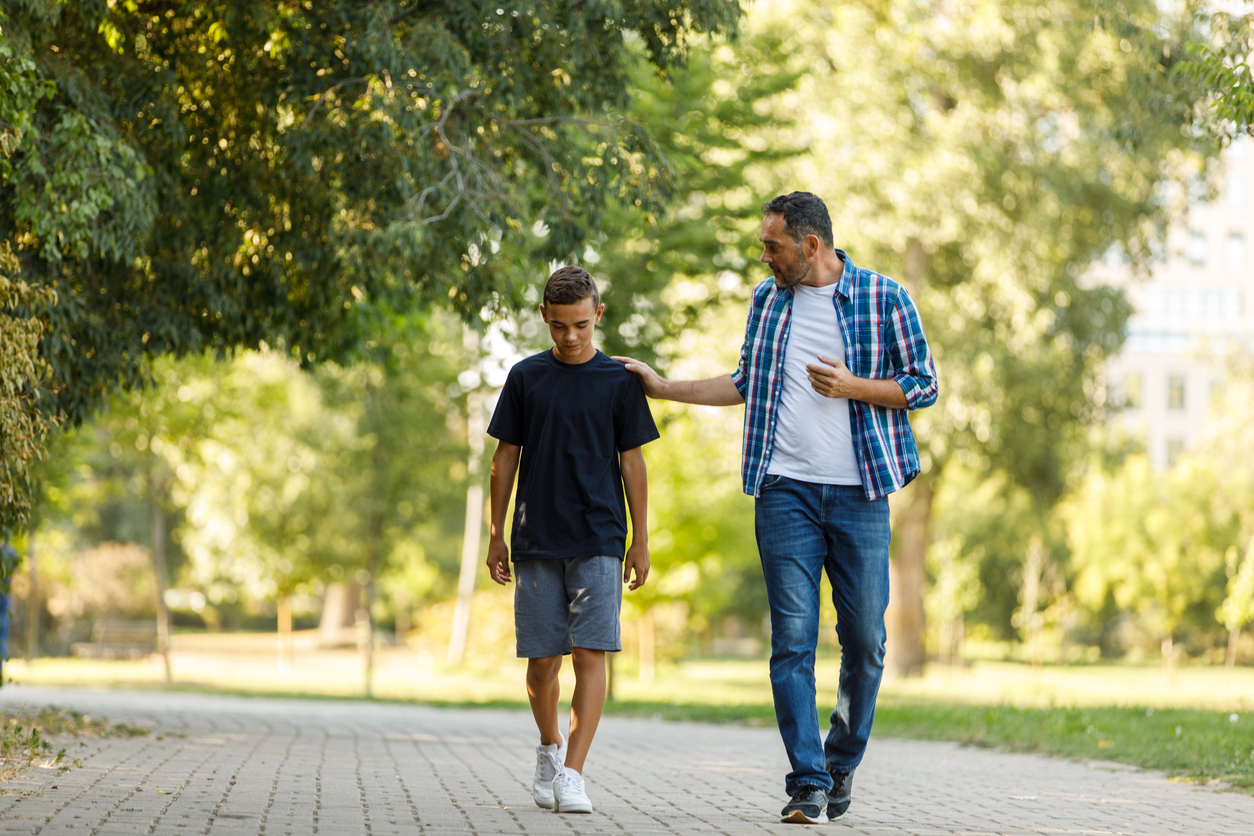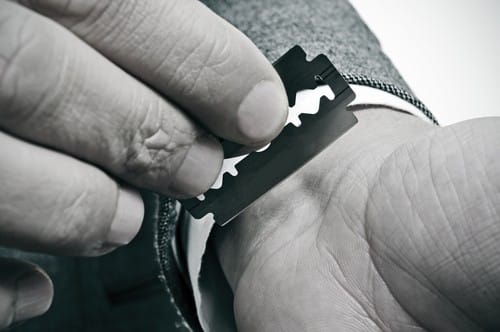How do I know if my teenager is depressed? It’s a question we hear from concerned parents often. Depression can take on different forms in teens, from irritability and a tendency to isolate to problems at school, chronic oversleeping, or even changes in hygiene. Differentiating between an expected change in mood and a depressive disorder can be difficult sometimes, so parents should take note of the most common signs of teenage depression.
Depression and anxiety disorders affect teens more than any other kind of mental health problem. Adolescence tends to be the onset for most lifelong or chronic depressive disorders, so recognizing the signs and symptoms early can help parents and caregivers navigate treatment and symptom management with their teens.
It’s essential to look for sudden changes in teen behavior, such as withdrawal from activities they once enjoyed, increased irritability, and changes in sleep or appetite. In the long term, teens may exhibit low self-esteem, lack of motivation, and difficulty concentrating in school or other activities. This article explores a common question we hear from parents: How do I know if my teenager is depressed?
What is Teen Depression?
Depression is more than sadness or grief. A depressive disorder can be categorized into one of several different “mood disorders”, ranging from conditions like major depressive disorder (often also called “clinical depression”) to persistent depressive disorder (dysthymia), bipolar disorder, and premenstrual dysphoric disorder (PMDD).
Mood disorders can have different causes. Some forms of depression can be linked to environmental factors, from trauma to stress. Some forms of depression are the result of an underlying, not yet understood health condition, as can be the case for PMDD. Teens can develop long-term depression after episodes of grief or loss. Depression is also very hereditary.
To be diagnosed with a form of depression, a teenager would have to experience a consistently low mood – with no apparent cause or reason – for at least a month.
How Do I Know if My Teenager is Depressed?
Teens experiencing depressive symptoms might try to hide the way they feel, or they could be outwardly aggressive due to frustrations with their mood and negative thinking. Some researchers even believe that depression is underdiagnosed in teen boys (depression is more commonly found in girls) because there may be gender-specific symptoms that are less well-known. So, how do I know if my teenager is depressed?
Recognizing the Signs of Depression in Teens
The most unmistakable sign that something is wrong is a sudden and prolonged change in behavior. Many mental health issues can start with rapid changes, whether it’s a loss of interest in all hobbies or a severe drop in grades. While depression is a common mental health issue, it’s not always easy to recognize. Other problems in life can cause feelings of sadness or even fatigue and sleeplessness, and not all of them are signs of a mental health issue.
However, when many symptoms co-occur and when they remain consistent across environments – showing up at home, at school, and among friends – then it’s more likely to be a mental health issue.
Most signs of teen depression can be categorized into emotional symptoms, behavioral symptoms, and physical symptoms. Let’s go through each of them.
Emotional Signs of Teen Depression
Emotional signs of teen depression can include:
- Feelings of isolation, loneliness, worthlessness, and consistent sadness.
- Crying, sometimes out of nowhere.
- Short fuse/irritability.
- Thoughts about dying.
Depression is characterized by consistently low mood. If a person’s baseline mood is expected to be neutral, someone who is depressed will feel sad most of the time, and sadness becomes their new “normal”.
Behavioral Signs of Teen Depression
Behavioral signs of teen depression can include:
- Loss of interest in activities that used to be enjoyable, and no new hobbies.
- Social isolation and difficulty connecting with others.
- Drastic changes in eating habits (eating much more, or much less).
- Drastic changes in sleep patterns (oversleeping, unable to get out of bed).
- Frequently talking or joking about suicide or going away forever.
- Frequent risky or reckless behavior, even for teen standards.
- Downplaying symptoms, refusing help.
The behavioral signs of depression range from acting out to withdrawing completely. Teens going through depression may feel like nothing matters anymore and respond accordingly.
Physical Signs of Teen Depression
Physical signs of teen depression can include:
- Complaints of physical fatigue or unexplained pains with no other symptoms (usually headaches or stomach aches).
- Potentially violent or abusive behavior.
- Substance use problems.
Depression can cause unexplained feelings of fatigue and pain or exacerbate existing mental and physical health problems. Among teens with chronic health problems or teens in treatment for a disease, depression can worsen physical outcomes when left untreated.
Talk With Your Teenager
Only a doctor can diagnose someone with a depressive disorder, but for many teens, the idea of going into treatment or being assigned a label can be difficult to adapt to. It’s important to talk to your teen, ask questions, and listen to them. How have they really been feeling lately? Are there thoughts and feelings that they don’t want to feel, that won’t go away? Are they looking forward to anything in the near future, or are they thinking about the future at all to begin with?
When to Seek Professional Help
If your teenager’s complaints resemble the signs mentioned above, then talk to them about visiting a counselor or therapist together. Make sure they know they’re not alone with their thoughts.
A mental health professional can help your teen better understand why they’re feeling the way they feel, and more importantly, how to respond within the framework of a therapeutic treatment process.
Contact Visions Adolescent Treatment Centers to learn more about our teen treatment center in Southern California.
Teen Depression Treatment at Visions
Are you looking for support for your teen? Visions Adolescent Treatment Centers is here to help and specializes in providing teen depression treatment.
We offer residential treatment programs, outpatient treatment programs, and many other mental health plans tailored for teens struggling with mental health problems like depression in the greater Los Angeles area.
Our evidence-based therapies, experienced staff, and nurturing residential environment help teens receive support.
Take the first step towards your teen’s recovery today by contacting us at Visions Adolescent Treatment Centers.
Conclusion
The signs and symptoms of teen depression include emotional signs, behavioral signs, and physical signs. Sometimes, depression can be harder to spot and identify in teens who try to mask their pain.
Talking with your teen, checking up on them frequently, and discussing therapy options together can help them get the help they need. Contact us at Visions Adolescent Treatment Centers for a free assessment.
Write a three-sentence conclusion and encourage parents to schedule a free assessment with Visions near the end.








